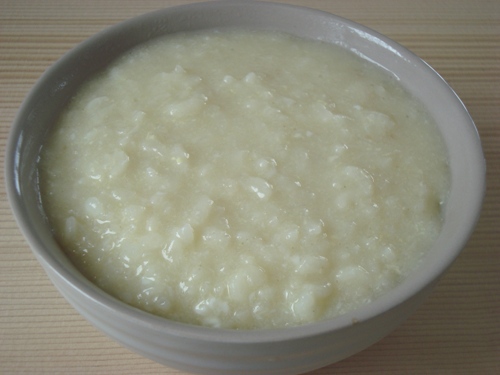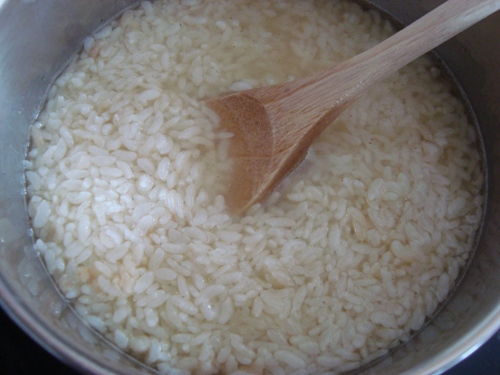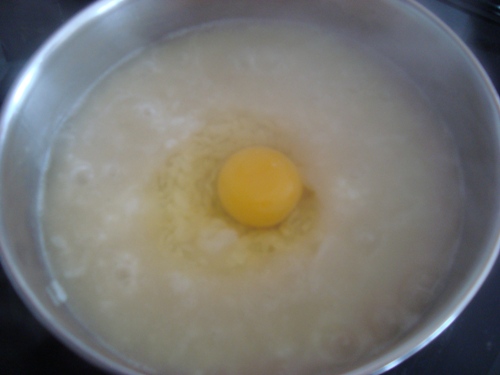You are here
How to Make Rice Porridge
I know that this post will get some members of the food police upset with me, but I continue to find that in some cases, when taken in moderation, cooked white rice can be a health-enhancing food choice.
As outlined in my article on when to eat white rice, there is nutritional value in white rice - it contains protein, carbohydrates, iron, and some B vitamins. White rice isn't as nutrient-dense as brown rice, of course, but I don't agree with the contention that white rice is to be avoided in all circumstances.
The low fiber content of white rice compared to that of whole grains is what makes white rice a helpful choice when your digestive tract is weakened from chronic or acute illness. When I ran a residential fasting clinic, I regularly worked with severe colitis patients who couldn't tolerate even a spoonful of raw green vegetables; in every single such case, softer meals like potato soup, steamed summer squash, steamed yams, and rice porridge were what allowed healing nourishment.
I would guess that this is why people of many cultures turn to rice porridge as a go-to meal for those who aren't feeling well. In Korean culture, we call rice porridge jook. In Chinese culture, it's typically called congee.
Making rice porridge is easy. All you need is some leftover cooked rice, water or broth, and if you want to add more nutrient-density, some eggs.
If you don't have experience with making rice porridge, please note that it's made in a wide variety of consistencies. Some people like it creamy and substantial like oatmeal. Others prefer it to be cooked down or blended until it becomes a soup without visible grains of cooked rice.
If you plan on giving rice porridge to someone who is quite ill and doesn't have much of an appetite, it's generally best to make it more on the liquid side by using lots of water or broth and/or blending things up before serving.
So here are the basic steps to making rice porridge:
Start with some leftover white rice.
And one egg per two cups of cooked rice. I used four cups of cooked white rice for this batch, hence, two beautiful eggs.
Transfer rice to a soup pot.
Add enough broth or water to cover the rice. Again, you can control how thick or thin the final result is by adding more or less liquid. Generally, I find it's best to add about an extra inch of broth after the rice is fully covered. I prefer broth over water to add extra minerals and flavor.
Bring the broth and rice to a boil, then simmer for a good 10 minutes while stirring slowly.
Add eggs. If you're making a small batch for just one person, one egg is more than enough.
Break the eggs up with a fork - you want to be efficient here; otherwise, you may end up with a solid cooked yolk in your porridge.
Sorry for the lack of clarity in the two pictures above - I had to hustle, and the steam kept fogging up my lens.
Stir continuously and allow porridge to cook for another few minutes until it looks something like this:
If you need a little flavor, add a touch of traditionally fermented soy sauce before eating.
Voilà - that's how you can make a nourishing batch of rice porridge. I encourage you to give it a try the next time your digestive tract needs a bit of a break and you feel like an easy-to-digest and nourishing meal.














